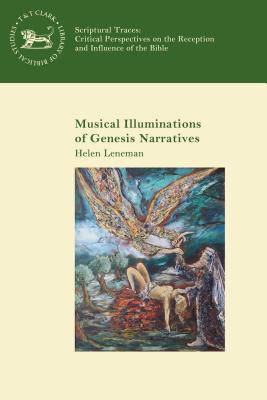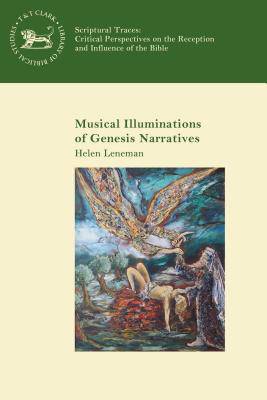
- Afhalen na 1 uur in een winkel met voorraad
- Gratis thuislevering in België vanaf € 30
- Ruim aanbod met 7 miljoen producten
- Afhalen na 1 uur in een winkel met voorraad
- Gratis thuislevering in België vanaf € 30
- Ruim aanbod met 7 miljoen producten
Zoeken
€ 81,45
+ 162 punten
Uitvoering
Omschrijving
This volume examines the stories of Genesis in music, showing how musical settings can illuminate many of the Bible's most noted tales. Helen Leneman studies oratorios, operas and songs (as well as their librettos) to shed light on how Genesis has been understood and experienced over time. Examining an extensive range of musical settings of stories from the book of Genesis, Leneman offers an overview of chiefly 19th and 20th century musical engagements with this biblical text.
Leneman first discusses how Eve's inner thoughts are explored by noted French composers Jules Massenet and Gabriel Fauré. The text then enters the deep waters of Noah's flood in examination of several compositions, including two unusual settings by Igor Stravinsky and Benjamin Britten, as well as more conventional settings by Saint-Saëns and Donizetti. Two major 19th century oratorio settings of Abraham's story by lesserknown German composers Martin Blumner and Karl Mangold provide fascinating illuminations of the Abraham narratives, whereas parts of Rebecca's story are found in works by César Franck, Ferdinand Hiller, and most unusually, by a French woman composer, Célanie Carissan. Finally, Leneman shows how Joseph's story was set in numerous oratorios (including by Handel) but that one of the most important works based on his story is an opera by 18th century French composer Etienne Méhul. In addition to discussing these larger 19th century works, Leneman also examines several interesting atonal 20th century works based on the stories of Eve and the Flood, shedding new light on the history of the interpretation of the Book of Genesis.Specificaties
Betrokkenen
- Auteur(s):
- Uitgeverij:
Inhoud
- Aantal bladzijden:
- 320
- Taal:
- Engels
- Reeks:
Eigenschappen
- Productcode (EAN):
- 9780567688811
- Verschijningsdatum:
- 30/05/2019
- Uitvoering:
- Paperback
- Formaat:
- Trade paperback (VS)
- Afmetingen:
- 156 mm x 234 mm
- Gewicht:
- 444 g

Alleen bij Standaard Boekhandel
+ 162 punten op je klantenkaart van Standaard Boekhandel
Beoordelingen
We publiceren alleen reviews die voldoen aan de voorwaarden voor reviews. Bekijk onze voorwaarden voor reviews.







